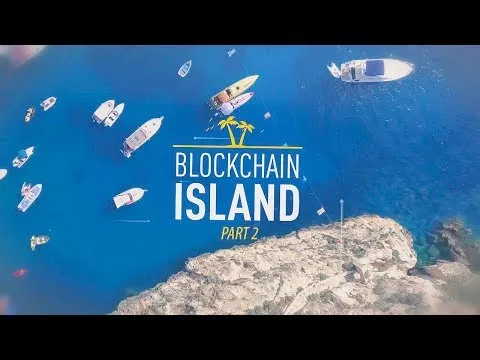Widely touted as “the Blockchain Island,” Malta took the lead in regulating cryptocurrency. But in the enthusiasm they seem to miss the basic premise of tokenomics. By totally abolishing tradable “utility tokens” they transformed all exchange-listed tokens into regulated security tokens, thereby excluding all Maltese crypto startups from being exchange-worthy, as exchanges list only the proven utility tokens. There are lessons to be learned from the Malta blunder.

Recently global media reported Indian regulators’ intent to ban all cryptocurrencies. We recently published a report debunking the myths surrounding cryptocurrencies particularly in the Indian regulatory context. Blockchain an integral part of cryptocurrency is a trillion dollar opportunity that the world cannot afford to miss. Taking the lead in this mega opportunity apparently is Malta. According to a tweet by the Maltese Minister for financial services, on 4th, July 2019, Maltese Parliament enacted 3 bills to regulate DLT / cryptocurrency / blockchain claiming to become the first world jurisdiction to provide legal certainty to the crypto space.

Global Capital Of Crypto?

How Malta Is Becoming The Glogal Capital Of Crypto - A Cointelegraph Documentary
No Tradable Utility Tokens In Malta Anymore
A few months ago CROWDOCRACY published a commissioned study to review the Maltese new crypto regulations. The study finds the new Maltese crypto / blockchain regulations quite stifling rather than being blockchain friendly. The new Maltese regulations abolish the Howie standard for defining utility tokens and reclassify every tradable token into a security token. This makes it virtually impossible for crypto exchanges to operate in Malta. So news about Binance and OKEx moving to Malta is probably nothing more than marketing gimmicks.
While a total blanket ban on cryptocurrencies would be a blunder, an ill-conceived crypto regulation, such as the one enacted by Malta, wouldn't be less than a crypto catastrophe.
Malta's new Virtual Financial Asset Act (VFAA) is indeed a crypto catastrophe that virtually drives the $300 billion utility tokens marketplace out of Malta.
While the world is campaigning to further relax the Howey test for supporting innovation, Malta's Virtual Financial Assets Act (VFAA) is stifling the innovation by completely abolishing the concept of "utility token" and eventually killing the Howey standard.
Under Malta's VFAA, every utility token that trades on a cryptocurrency exchange becomes a regulated security token. If any Maltese crypto startup releases a utility token with an intent to list on an exchange it automatically becomes a regulated security token (Section G1–3.3.1 of the VFAA leaves no ambiguity in concluding that if there is even an intent to list a token at any of the crypto exchanges it would be considered as a regulated token). Therefore, as a consequence of VFAA's definition every exchange-tradable token whether utility or not, under Malta law, becomes a security token. And, no crypto exchange will list it as every exchange out there requires a token to be verified and proven to meet the Howey test of utility token.
Technically exchanges will not be able to operate in Malta as all the tokens they list are utility tokens. Security tokens don't get listed. And …. Without Tradability Security Tokens Are Worthless
The Scylla and Charybdis Dilemma
For an existing crypto business located in a crypto restrictive jurisdiction moving to Malta will be like being caught up between Scylla and Charybidis. While remaining in their existing jurisdiction restricts their potential, moving to Malta makes their existing utility tokens illegal in Malta unless regulated as security tokens. This means all exchanges will have to delist their tokens the moment they are classified as security tokens.
The situation with crypto exchange is even worse. Reclassifying all of their listed utility tokens as security tokens under Maltese law will make these tokens illegal in the jurisdictions where the token owners are located. This means that the token owners will have no choice but to withdraw their token listing from such a Malta regulated exchange. If they don't do that they will be delisted in all other exchanges where their tokens are listed. Such mass withdrawal of tokens would essentially kill the exchange business if the exchange moves to Malta.
Well Deliberated Decision Or An Inadvertent Error?
Considering that Malta enacted three Acts to cover the entire scope of cryptocurrency, the provisions obviously went through the due diligence process that all democracies follow as their standard operating procedures. So they cannot be inadvertent errors. Otherwise also, a core provision that defines the "token" which is at the heart of any cryptocurrency / blockchain protocol cannot be just an inadvertent error.
Recently, Adrian Delia, the leader of opposition Malta's Nationalist Party expressed concern about Government's silence and inaction regarding thedfe cryptocurrency market. Referring to a migrated blockchain company that has sacked most of its workers, he alleged that
this was a result of a lack of vision and planning.
Although the Maltese opposition party did not specifically point to the lacuna in the Acts per se, but looking at the FAA it isn't hard to conclude that lack of vision and planning on the part of the Maltese legislature, as alleged by Delia, is written large.
This article is simulataneously posted in Medium
